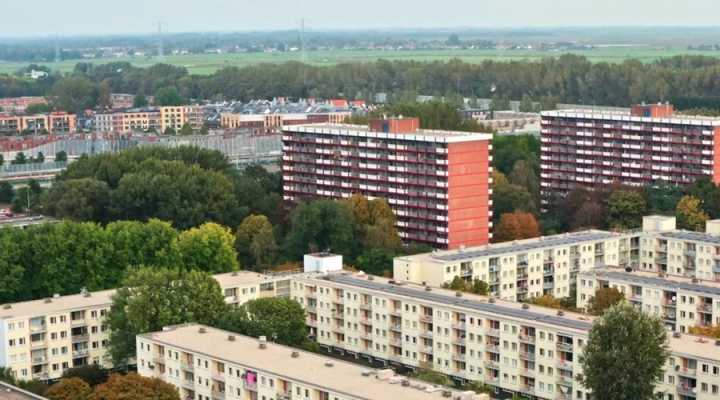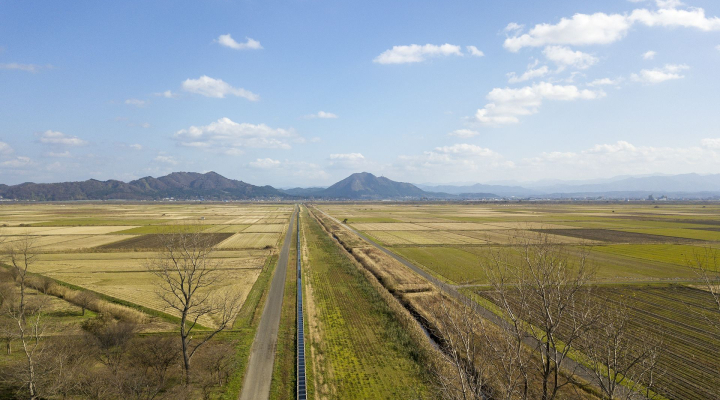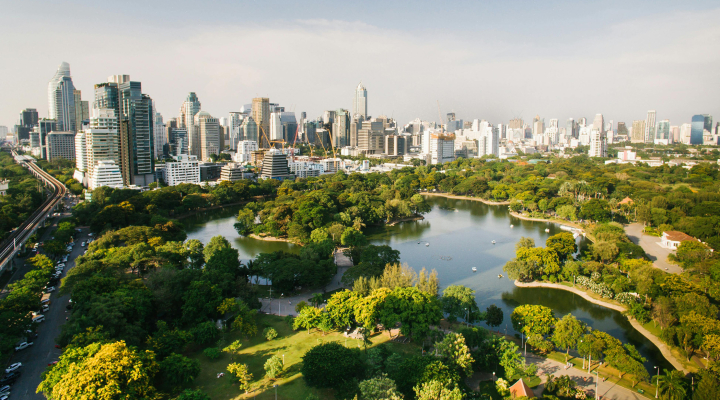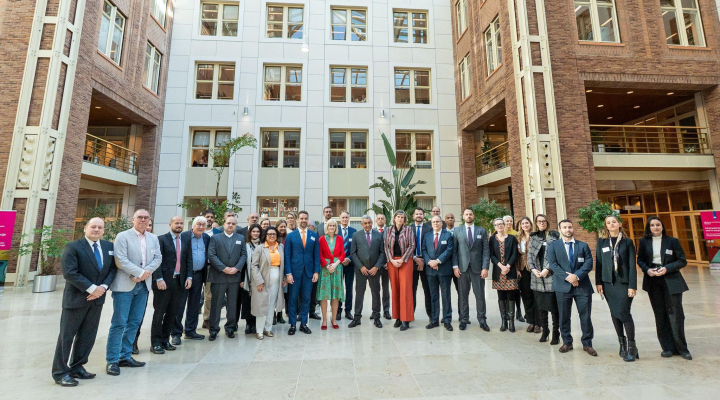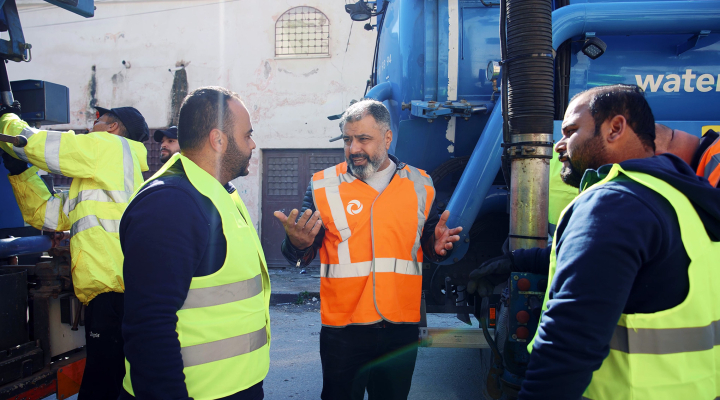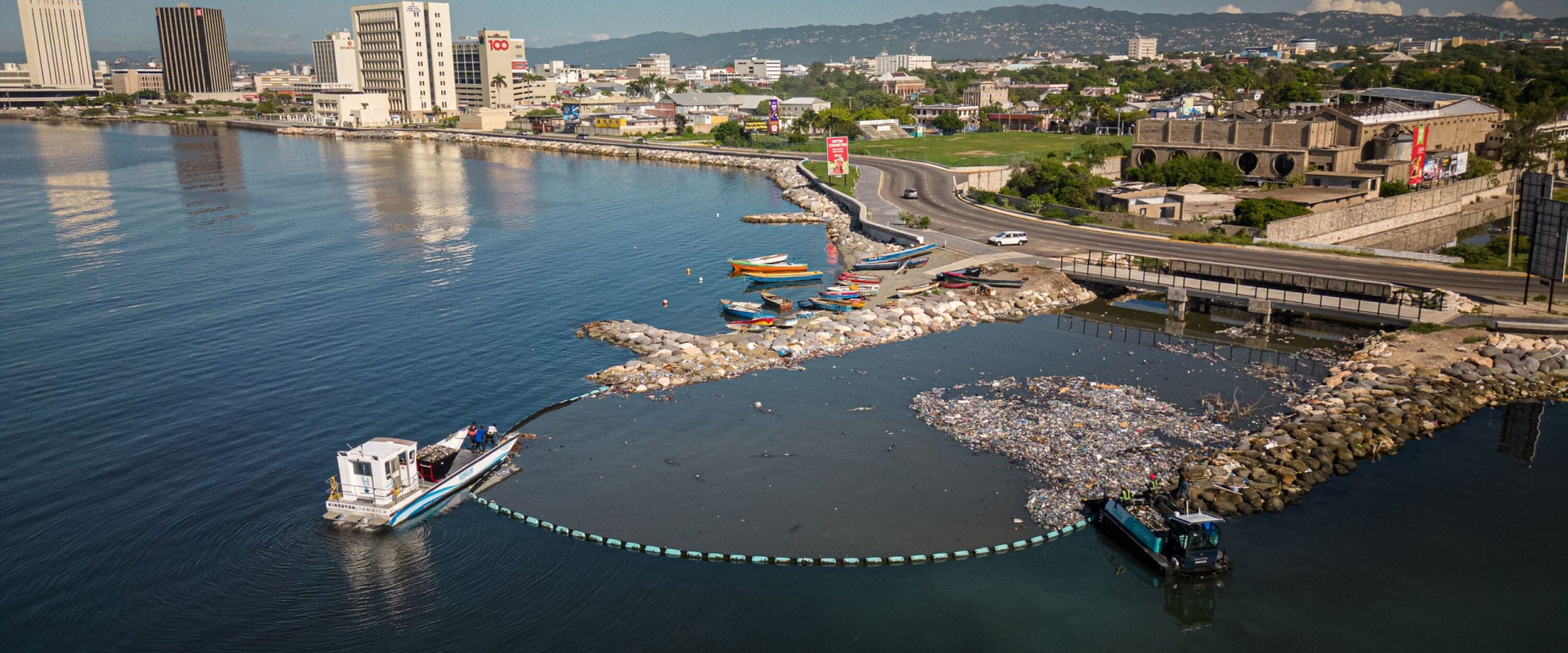
The Ocean Cleanup’s new 30 Cities Programme
The Ocean Cleanup, a Dutch non-profit founded in 2013, has been working on removing rubbish in the world’s oceans for years and is now launching a new programme called the 30 Cities Program that will use its modified Interceptors (see below) to capture rubbish in 30 cities before it enters the sea. That there is a lot of rubbish, including plastic, in the world’s oceans is well known. Less well known is the impact of waste on nature, the environment and human health. How does all that rubbish end up in the oceans? Two of the main sources are rivers and waterways, many of them in cities, flowing out to sea. Recognising the huge problem of marine debris – the collective term for all rubbish in the oceans – The Ocean Cleanup, a Dutch non-profit founded by Boyan Slat in 2013 when he was only 18 years old, announced at the 2025 UN Ocean Conference in June 2025 that it is launching the 30 Cities Program in 30 cities in Asia and North and South America.
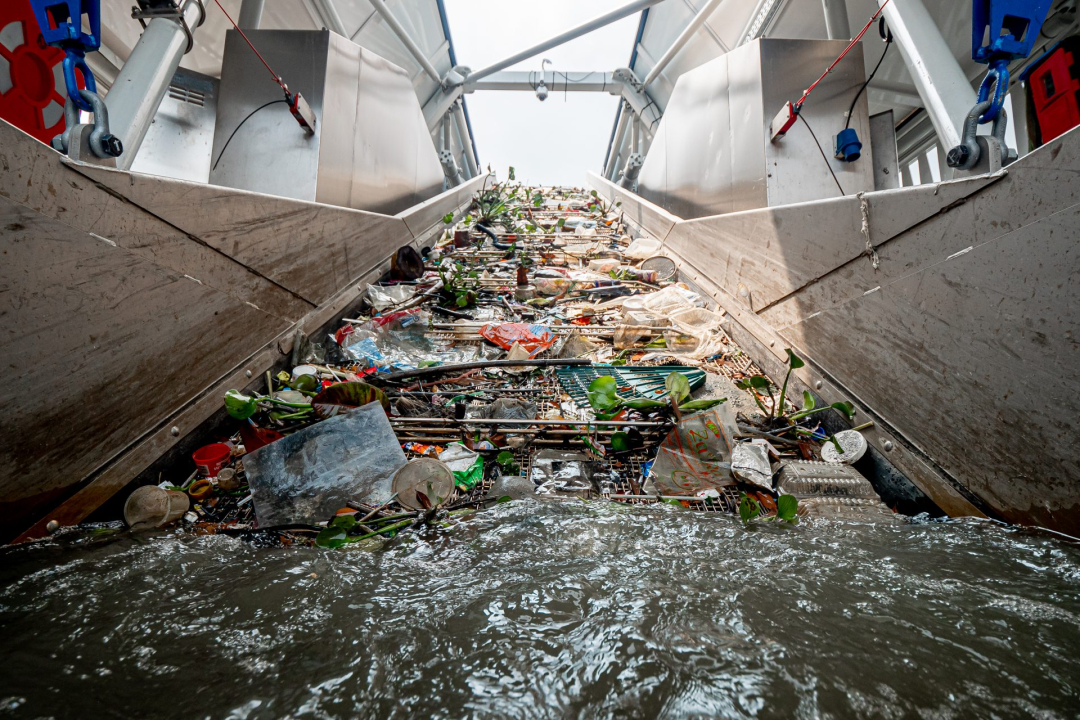

Why a city-wide approach?
The world’s oceans have a huge problem with waste, and plastic waste is the worst there is as it does not biodegrade, but instead breaks down into ever smaller pieces, ultimately becoming microscopic nanoplastics and ending up in our bodies through food and drink consumption and breathing. Nanoplastics have even been found in the brains of human foetuses, carried there by their mothers’ circulation systems. Much of that waste is generated in urban areas or finds its way to rivers and is carried to coastlines, often just where cities are built.
The Ocean Cleanup hopes to remove one third of all the plastic waste that ends up in the ocean by 2030. It already runs cleanup activities in rivers in 20 other cities so is building on its experiences there for the 30 Cities Program. These 20 cities account for the removal of an estimated one to three percent of plastic waste worldwide. The 30 Cities Program will have a much greater impact as it will not only operate in individual rivers, but across all the waterways in each of the 30 cities in Asia and North and South America.
Interceptor
A system called Interceptor was first tested successfully in Rotterdam in 2015. It involves barricades placed in rivers and waterways to gather rubbish which is then collected and put in containers on vessels. The containers of rubbish are then brought to shore, to processing plants for disposal. The conditions, flow and size of every river and waterway are different, and since the Interceptor was first designed, tested and later deployed in 2019, it has been adapted several times.
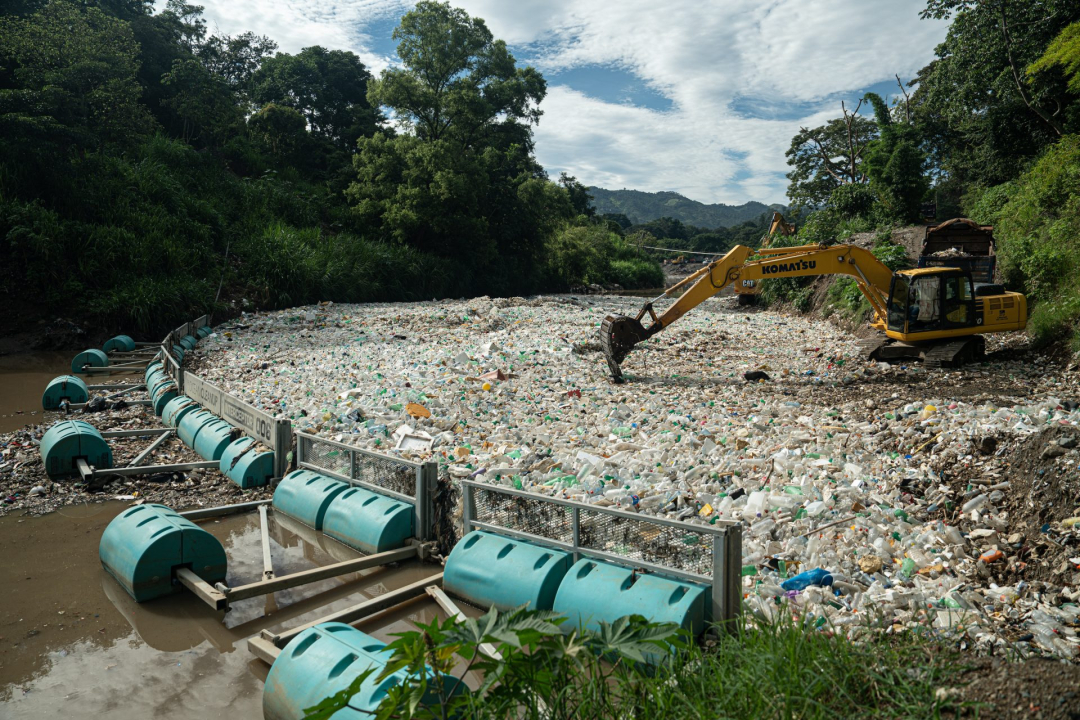

Scaling up
By scaling up and running a broader project, the same group of partners along with The Ocean Cleanup can have a bigger impact while keeping costs lower. This will hopefully help it achieve its target of removing one third of all rubbish – particularly plastic waste – from entering the ocean. The planning and fundraising for the 30 Cities Program is underway. The cities that have now been named are: Bangkok (Thailand), Jakarta (Indonesia), Kuala Lumpur (Malaysia), Los Angeles (USA), Manila (Philippines), Montego Bay (USA), Mumbai (India), and Panama City (Panama). The other cities will be named once the partnerships and agreements have been confirmed.
This news item was originally published on the website of H2O (in Dutch), an online platform of the KNW (Koninklijk Nederlands Waternetwerk, royal Netherlands water network, in Dutch).




